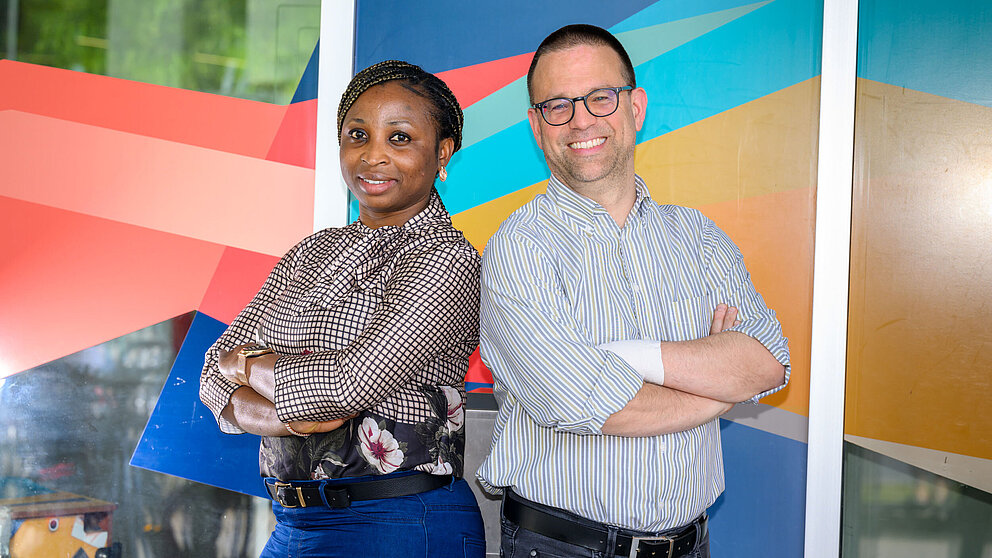
“My doctoral supervisor, Professor Emmanuel Unuabonah, is also a Humboldtian and was a postdoc in Potsdam,” Georg Forster Research Fellow Dr Gloria Ugwuja explains. “That was at least ten years ago,” Professor Andreas Taubert recalls. As a host in the Taubert Lab of supramolecular and materials chemistry, he has already welcomed “generations” of doctoral candidates and postdocs from Nigeria to the University of Potsdam. This cooperation with experts at the African Center of Excellence for Water and Environmental Research in the western Nigerian city of Ede has proved its worth. The researchers in Nigeria and Germany have a common purpose: In a consortium with colleagues from France and Egypt, they are exploring how water around the world can be purified so that it can be used as drinking water with the help of simple, but effective organic-inorganic hybrid materials. Ideally, agricultural waste such as orange peel and papaya kernels can also be used for these materials.
“Water pollution is a global problem,” says Taubert. “And as water is becoming scarcer due to climate change, it’s all the more important to be able to treat it. However, different kinds of pollution require different methods. “In Nigeria, there is pollution that derives from mining; we have to deal with residues of highly toxic heavy metals in water,” reports Dr Ugwuja. In Germany, it’s often a case of dealing with antibiotics and hormone-active substances in water, Taubert adds.
Junior researcher Dr Ugwuja was awarded the AGNES-PAWs Junior Research Grant in 2021. Taubert discovered her work during her first stay in Potsdam as a doctoral candidate. “Our research approaches complement each other perfectly,” says Taubert. Whilst his focus is currently on the synthesis and specific adaptation of hybrid materials to certain contaminants, Ugwuja concentrates on local applications and the use of new photoactive materials to degrade organic pollutants using light irradiation. “It would be great if we could utilise the material directly with consumers, in households,” she adds from a Nigerian perspective. For recycling drinking water, the same applies as it does to so many human tasks: one global challenge, many local solutions. And they can be found through exchange and cooperation.
